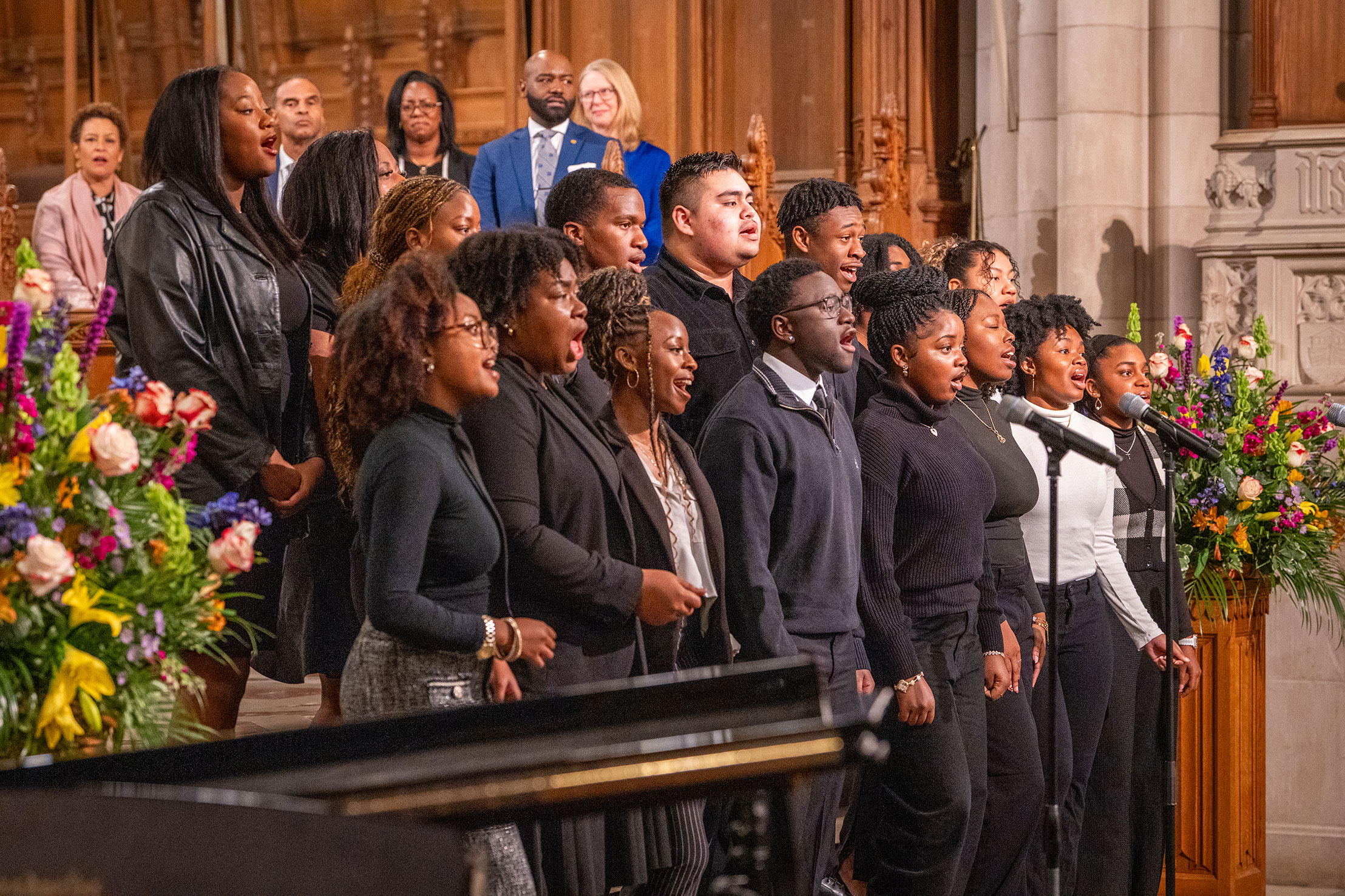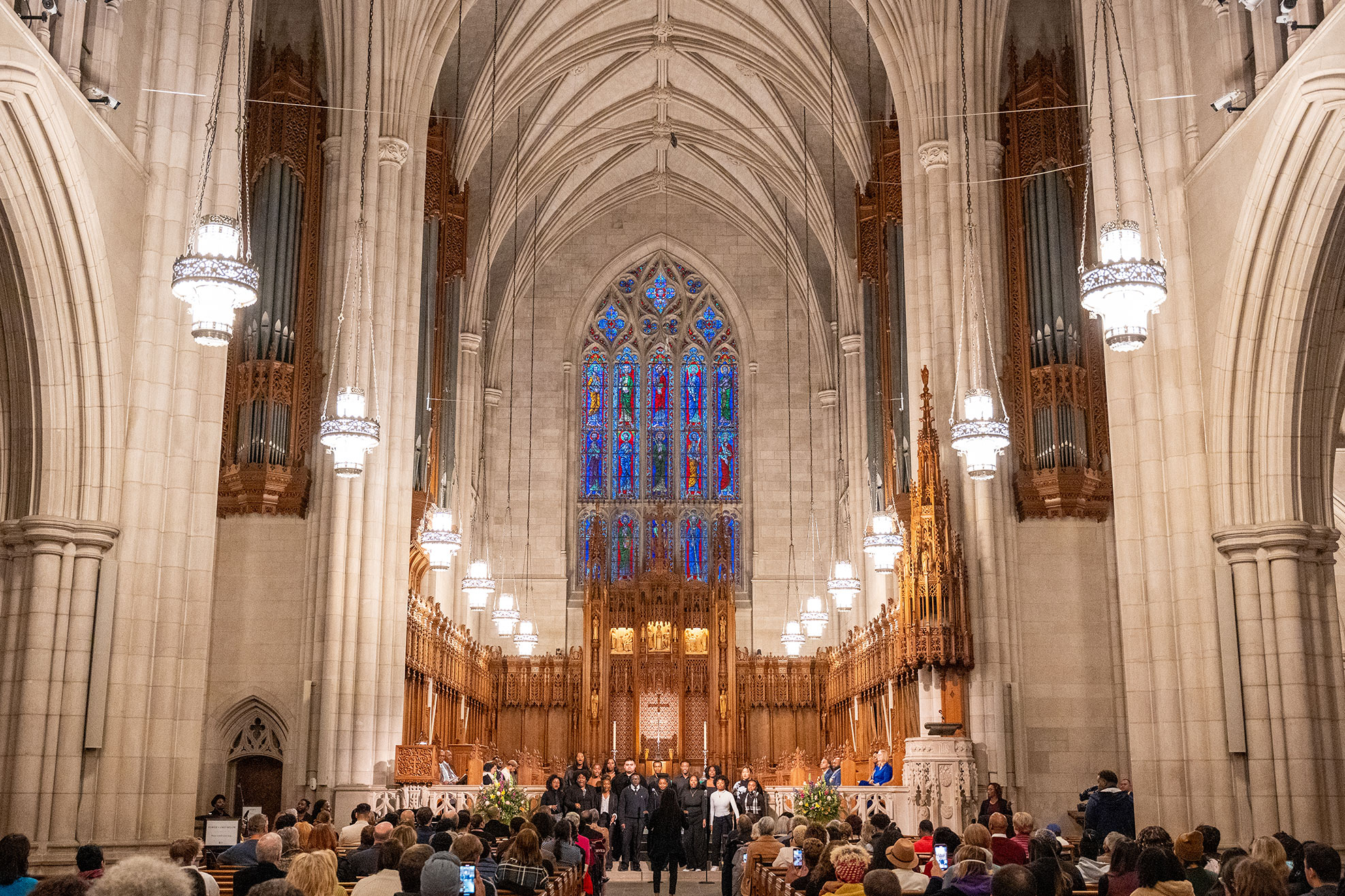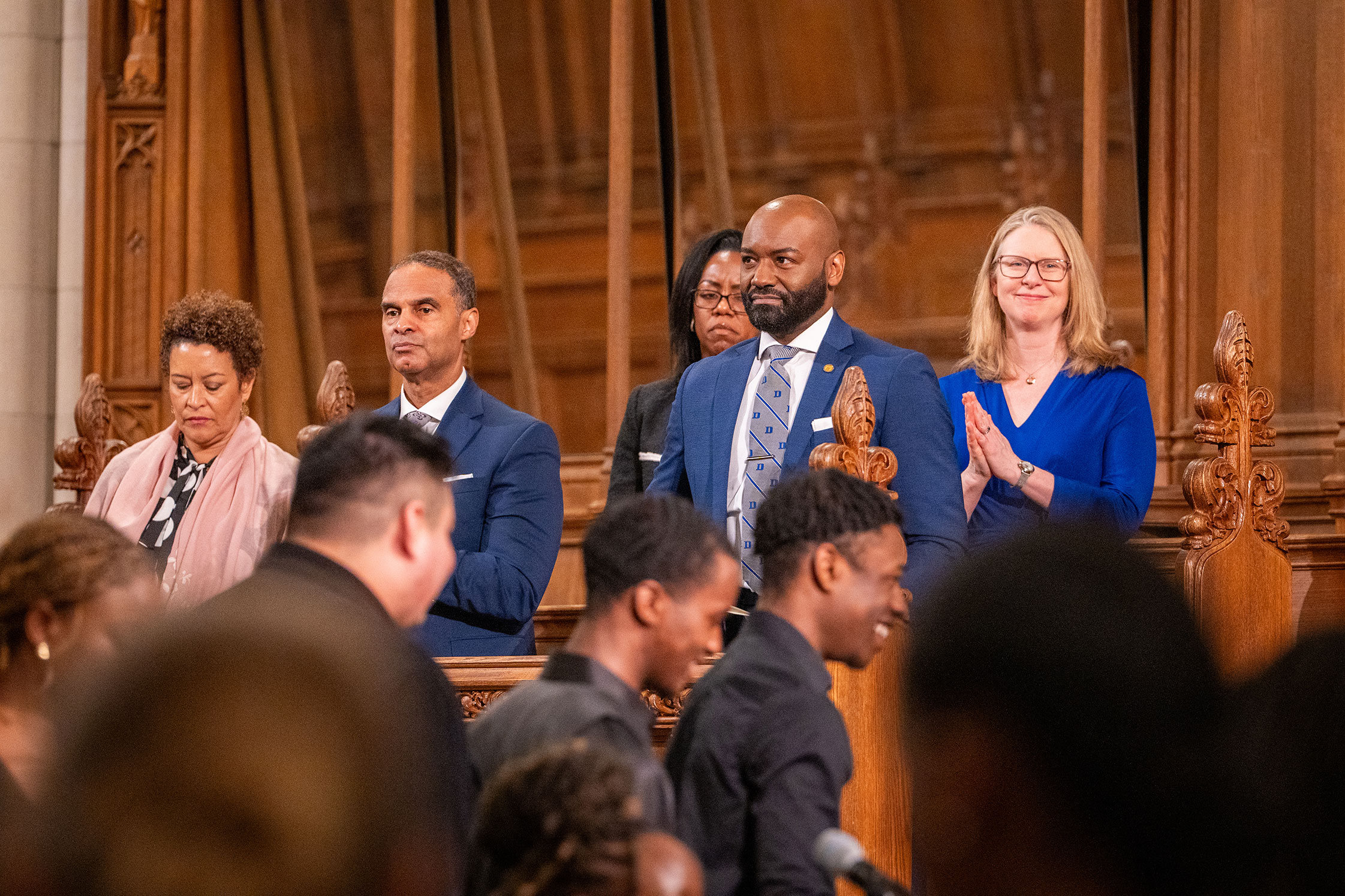King’s life was cut short at age 39, by an assassin’s bullet on the balcony of the Lorraine Motel in Memphis, Tennessee, on April 4, 1968.
Nearly 60 years later, Sunday’s service happened against the backdrop of a nation approaching the fifth anniversary of the police murder of George Floyd.
Prior to his appointment as a federal judge by President Joe Biden, Blackwell was annually recognized as one of America’s best attorneys.
The Kannapolis native earned his undergraduate and law school degrees from UNC-Chapel Hill. He came to the nation’s attention when he was named lead prosecutor for the trial of Derek Chauvin, the Minneapolis police officer convicted of Floyd’s murder.
The last line Blackwell delivered to the jury before deliberations was memorable.
“You were told, for example, that Mr. Floyd died because his heart was too big. You heard that testimony,” Blackwell told the jury. “Now having seen all the evidence, having heard all the evidence, you know the truth. And the truth of the matter is – that the reason George Floyd is dead is because Mr. Chauvin’s heart was too small.”


Blackwell said King’s legacy inspired him to get involved with the Chauvin trial.
“You see, [King] loved what I would refer to in that trial as ‘the bouquet of humanity,’ the over 300 million of us who are Americans, who — shining through the prism of God — become 300 million particles of light,” Blackwell explained.
“Each one of us, dazzling individually, each one imbued with the spark of the Creator twinkling inside. And all together we became part of a sparkling mosaic of light in this experiment in the governance of America.
“Of the people,” Blackwell added after a brief pause. “Each and every one of you [is] the engine of America. Our participation in public life, our concern for the general welfare [is] the fuel for that engine.”
Gift of music
King described music as “one of the most magnificent and delightful presents God has given us.”
That gift was on full display during the service with jazz offerings by the John Brown Quintet and gospel compositions by Duke University’s United in Praise Gospel Choir, including a moving rendition of the Civil Rights Movement anthem, “We Shall Overcome.”

Joshua Salaam, chaplain with the university’s Center for Muslim Life, delivered the benediction.
“Dr. King warned us that it is not the actions of our enemies that wound the deepest, but the silence of our friends. A silence that tricks the conscience, convincing it to remain comfortable. Telling it that stillness and inaction is peace,” Salaam said.
Prior to Blackwell’s nearly 30-minute address, the service attendees heard opening remarks from several university officials, including Rabbi Elana Friedman, campus rabbi with Jewish Life at Duke; Luke A. Powery, Duke Chapel dean; Duke President Vincent Price; and Durham Mayor Leonardo Williams.
“America’s take-home exam is to solve the problem of disunity, bridging our differences, as Martin Luther King lived to do.”
Judge Jerry Blackwell
Price recalled King’s 1964 visit to Duke, during the height of the Civil Rights movement. Price said King shared one of the most profound lessons ever delivered on the campus.
“Dr. King offered a lesson that still resonates today, more than six decades later. He acknowledged that his country had come, in his words, a long, long way in confronting racism. Dr. King said he could have ended his speech with that fact. …[But] ending his speech with the fact that the country had come a long, long way would also be sparing them the truth.
“Dr. King said, ‘So, in order to tell the truth…not only have we come a long, long way, but we have a long, long way to go before this problem is solved, and before the brotherhood of man is a reality in this great nation of ours.’”
‘We rise or fall together’
Blackwell noted that King’s “nonviolent resistance was devoted to achieving just and moral ends by just and moral means. But all derived from the united participation of the people.”
“America,” Blackwell said, “more than ever needs your participation. Whatever your political stripe, whatever your orientation; we rise or fall together, as will all the buttons on one common shirt.”
Toward the end of his address, Blackwell handed out a homework assignment to the Duke Chapel attendees and the nation at-large.
“America’s take-home exam is to solve the problem of disunity,” he said, “bridging our differences, as Martin Luther King lived to do.”
Now, Blackwell later added, “Martin Luther King was getting at this when he said, we are tied together in the single garment of destiny caught in an inescapable network of mutuality, and whatever affects one directly, affects all indirectly.”









